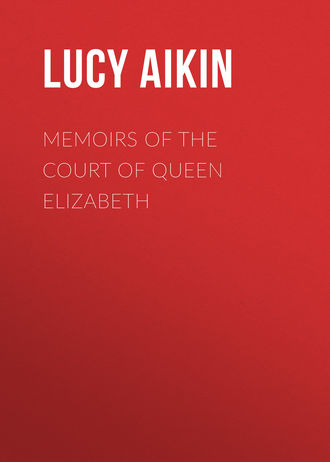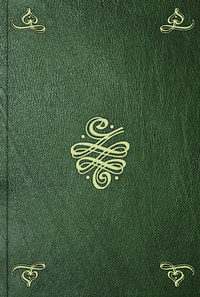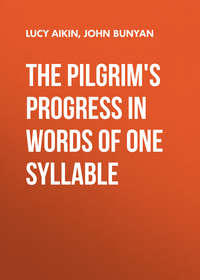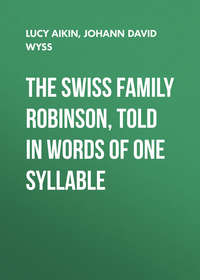 полная версия
полная версияMemoirs of the Court of Queen Elizabeth
But it would be endless to enumerate all who spontaneously came forward to partake the perils and the glory of this ever-memorable contest; and the naval commanders of principal eminence have higher claims to our notice.
The dignity of lord-high-admiral,—customarily conferred on mere men of rank, in whom not the slightest tincture of professional knowledge was required or expected,—at this critical juncture belonged to Charles second lord Howard of Effingham, of whom we have formerly spoken, and who appears never in the whole course of his life to have been at sea but once before, and that only on an occasion of ceremony. He was every way an untried man, and as yet distinguished for nothing except the accomplishments of a courtier: but he exhibited on trial courage, resolution, and conduct; an affability of manner which endeared him to the sailors; and a prudent sense of his own inexperience, which rendered him perfectly docile to the counsels of those excellent sea-officers by whom he had the good fortune to find himself surrounded. He encouraged his crew, and manifested his alacrity in the service, by putting his own hand to the rope which was to tow his ship out of harbour; and he afterwards gave proof of his good sense and his patriotism, by his opposition to the orders which her majesty's excess of œconomy led her to issue on the first dispersion of the armada by a storm, for laying up four of her largest ships; earnestly requesting that he might be permitted to retain them at his own expense rather than the safety of the country should be risked by their dismissal. John Hawkins, one of the ablest and most experienced seamen of the age, was chiefly relied upon for the conduct of the main fleet, in which he acted as vice-admiral. For his good service he was knighted by the lord-admiral on board his own ship immediately after the action, when the like honor was bestowed on that eminent navigator Frobisher, who led into action the Triumph, one of the three first-rates which were then all that the English navy could boast.
To the hero Drake, as rear-admiral, a separate squadron was intrusted; and it was by this division that the principal execution was done upon the discomfited armada as it fled in confusion before the valor of the English and the fury of their tempestuous seas. An enormous galleon surrendered without firing a shot to the much smaller vessel of Drake, purely from the terror of his name.
Whilst the lord-admiral, with the principal fleet stationed off Plymouth, prepared to engage the armada in its passage up the Channel, sir Henry Seymour, youngest son of the protector, was stationed with a smaller force, partly English partly Flemish, off Dunkirk, for the purpose of intercepting the duke of Parma, who was lying with his veteran forces on the coast, ready to embark and co-operate in the conquest of England.
In the midst of these naval preparations, which happily sufficed in the event to frustrate entirely the designs of the enemy, equal activity was exerted to place the land-forces in a condition to dispute the soil against the finest troops and most consummate general of Europe.
An army of reserve consisting of about thirty-six thousand men was drawn together for the defence of the queen's person, and appointed to march towards any quarter in which the most pressing danger should manifest itself. A smaller, but probably better appointed, force of twenty-three thousand was stationed in a camp near Tilbury to protect the capital, against which it was not doubted that the most formidable efforts of the enemy on making good his landing would be immediately directed.
Owing to the long peace which the country had enjoyed, England possessed at this juncture no general of reputation, though, doubtless, a sufficiency of men of resolution and capacity whom a short experience of actual service would have matured into able officers. Under circumstances which afforded to the government so small a choice of men, the respective appointments of Arthur lord Grey,—distinguished by the vigor which he had exerted in suppressing the last Irish rebellion,—to the post of president of the council of war; of lord Hunsdon,—a brave soldier long practised in the desultory warfare of the northern border, as well as in several regular campaigns against Scotland,—to the command of the army of reserve; and of the earl of Essex,—a gallant youth who had fleshed his maiden sword and gained his spurs in the affair of Zutphen,—to the post of general of the horse in the main army;—seem to have merited the sanction of public approbation. But the most strenuous defender of the measures of her majesty must have been staggered by her nomination of Leicester,—the hated, the disgraced, the incapable Leicester,—to the station of highest honor, danger, and importance;—that of commander in chief of the army at Tilbury. Military experience, indeed, the favorite possessed in a higher degree than most of those to whom the defence of the country was now of necessity intrusted, but of skill and conduct he had proved himself destitute; even his personal courage was doubtful; and his recent failures in Holland must have inspired distrust in the bosom of every individual, whether officer or private, appointed to serve under him. Something must be allowed for the embarrassments of the time; the deficiency of military talent; the high rank of Leicester in the service, which forbade his employment in any inferior capacity: but, with all these palliations, the nomination of such an antagonist to confront the duke of Parma must eternally be regarded as the weakest act into which the prudence of Elizabeth was ever betrayed by a blind and unaccountable partiality.
All these preparations for defence being finally arranged, her majesty resolved to visit in person the camp at Tilbury, for the purpose of encouraging her troops.
It had been a part of the commendation of Elizabeth, that in her public appearances, of whatsoever nature, no sovereign on record had acted the part so well, or with such universal applause. But on this memorable and momentous occasion, when,—like a second Boadicea, armed for defence against the invader of her country,—she appeared at once the warrior and the queen, the sacred feelings of the moment, superior to all the artifices of regal dignity and the tricks of regal condescension, inspired her with that impressive earnestness of look, of words, of gesture, which alone is truly dignified and truly eloquent.
Mounted on a noble charger, with a general's truncheon in her hand, a corselet of polished steel laced on over her magnificent apparel, and a page in attendance bearing her white-plumed helmet, she rode bare-headed from rank to rank with a courageous deportment and smiling countenance; and amid the affectionate plaudits and shouts of military ardor which burst from the animated and admiring soldiery, she addressed them in the following short and spirited harangue.
"My loving people; we have been persuaded by some that are careful of our safety, to take heed how we commit ourselves to armed multitudes, for fear of treachery; but, assure you, I do not desire to live to distrust my faithful and loving people. Let tyrants fear: I have always so behaved myself that, under God, I have placed my chiefest strength and safeguard in the loyal hearts and good-will of my subjects. And therefore I am come amongst you at this time, not as for my recreation or sport, but being resolved in the midst and heat of the battle, to live or die amongst you all; to lay down for my God, and for my kingdom, and for my people, my honor and my blood, even in the dust. I know I have but the body of a weak and feeble woman, but I have the heart of a king, and of a king of England too; and think foul scorn that Parma or Spain, or any prince of Europe, should dare to invade the borders of my realms: To which, rather than any dishonor should grow by me, I myself will take up arms; I myself will be your general, judge, and rewarder of every one of your virtues in the field.
"I know already by your forwardness, that you have deserved rewards and crowns; and we do assure you, on the word of a prince, they shall be duly paid you. In the meantime, my lieutenant-general shall be in my stead, than whom never prince commanded a more noble and worthy subject; not doubting by your obedience to my general, by your concord in the camp, and your valor in the field, we shall shortly have a famous victory over those enemies of my God, of my kingdom, and of my people."
The extraordinary reliance placed by the queen in this emergency upon the counsels of Leicester encouraged the insatiable favorite to grasp at honor and authority still more exorbitant; and he ventured to urge her majesty to invest him with the office of her lieutenant in England and Ireland; a dignity paramount to all other commands. She had the weakness to comply; and it is said that the patent was actually drawn out, when the defeat of the armada, by taking away all pretext for the creation of such an officer, gave her leisure to attend to the earnest representations of Hatton and Burleigh on the imprudence of conferring on any subject powers so excessive, and capable even in some instances of controlling her own prerogative. On better consideration the project therefore was dropped.
It is foreign from the business of this work to detail the particulars of that signal victory obtained by English seamanship and English valor against the boasted armament of Spain, prodigiously superior as it was in every circumstance of force excepting the moral energies employed to wield it. While the history of the year 1588 in all its details must ever form a favorite chapter in the splendid tale of England's naval glory, it will here suffice to mark the general results.
Not a single Spaniard set foot on English ground but as a prisoner; one English vessel only, and that of smaller size, became the prize of the invaders. The duke of Parma did not venture to embark a man. The king of Scots, standing firm to his alliance with his illustrious kinswoman, afforded not the slightest succour to the Spanish ships which the storms and the English drove in shattered plight upon his rugged coasts; while the lord-deputy of Ireland caused to be butchered without remorse the crews of all the vessels wrecked upon that island in their disastrous circumnavigation of Great Britain: so that not more than half of this vaunted invincible armada returned in safety to the ports of Spain. Never in the records of history was the event of war on one side more entirely satisfactory, and glorious, on the other more deeply humiliating and utterly disgraceful. Philip did indeed support the credit of his personal character by the dignified composure with which he heard the tidings of this great disaster; but it was out of his power to throw the slightest veil over the dishonor of the Spanish arms, or repair the total and final failure of the great popish cause.
By the English nation, this signal discomfiture of its most dreaded and detested foe was hailed as the victory of protestant principles no less than of national independence; and the tidings of the national deliverance were welcomed, by all the reformed churches of Europe, with an ardor of joy and thankfulness proportioned to the intenseness of anxiety with which they had watched the event of a conflict where their own dearest interests were staked along with the existence of their best ally and firmest protector.
Repeated thanksgivings were observed in London in commemoration of this great event: on the anniversary of the queen's birth a general festival was proclaimed and celebrated with "sermons, singing of psalms, bonfires, &c." and on the following Sunday her majesty went in state to St. Paul's, magnificently attended by her nobles and great officers, and borne along on a sumptuous chariot formed like a throne, with four pillars supporting a canopy, and drawn by a pair of white horses. The streets through which she passed were hung with blue cloth, in honor doubtless of the navy, and the colors taken from the enemy were borne in triumph.
Her majesty rewarded the lord-admiral with a considerable pension, and settled annuities on the wounded seamen and on some of the more necessitous among the officers; the rest she honored with much personal notice and many gracious terms of commendation, which they were expected to receive in lieu of more substantial remuneration;—for parsimony, the darling virtue of Elizabeth, was not forgotten even in her gratitude to the brave defenders of her country.
Two medals were struck on this great occasion; one, representing a fleet retiring under full sail, with the motto, "Venit, vidit, fugit;" the other, fire-ships scattering a fleet; the motto, "Dux fæmina facti;" a compliment to the queen, who is said to have herself suggested the employment of these engines of destruction, by which the armada suffered severely.
The intense interest in public events excited in every class by the threatened invasion of Spain, gave rise to the introduction in this country of one of the most important inventions of social life,—that of newspapers. Previously to this period all articles of intelligence had been circulated in manuscript; and all political remarks which the government had found itself interested in addressing to the people, had issued from the press in the shape of pamphlets, of which many had been composed during the administration of Burleigh, either by himself or immediately under his direction. But the peculiar convenience at such a juncture of uniting these two objects in a periodical publication becoming obvious to the ministry, there appeared, some time in the month of April 1588, the first number of The English Mercury; a paper resembling the present London Gazette, which must have come out almost daily; since No. 50, the earliest specimen of the work now extant, is dated July 23d of the same year. This interesting relic is preserved in the British Museum.
In the midst of the public rejoicings an event occurred, which, in whatever manner it might be felt by Elizabeth herself, certainly cast no damp on the spirits of the nation at large; the death of Leicester.
After the frequent notices of this celebrated favorite contained in the foregoing pages, a formal delineation of his character is unnecessary;—a few traits may however be added.
Speaking of his letters and public papers, Naunton says, "I never yet saw a style or phrase more seeming religious and fuller of the streams of devotion;" and notwithstanding the charge of hypocrisy on this head usually brought against Leicester in the most unqualified terms, many reasons might induce us to believe his religious faith sincere, and his attachment for certain schemes of doctrine, zealous. On no other supposition does it appear possible to account for that steady patronage of the puritanical party,—so odious to his mistress,—which gave on some occasions such important advantages over him to his adversary Hatton,—the only minister of Elizabeth who appears to have aimed at the character of a high church-of-England man. The circumstance also of his devoting during his lifetime a considerable sum of ready money, which he could ill spare, to the endowment of a hospital, has much the air of an act of expiation prompted by religious fears. As a statesman Leicester appears to have displayed on some occasions considerable acuteness and penetration, but in the higher kind of wisdom he was utterly deficient. His moral insensibility sometimes caused him to offer to his sovereign the most pernicious counsels; and had not the superior rectitude of Burleigh's judgement interposed, his influence might have inflicted still deeper wounds on the honor of the queen and the prosperity of the nation.
Towards his own friends and adherents he is said to have been a religious observer of his promises; a virtue very remarkable in such a man. In the midst of that profusion which rendered him rapacious, he was capable of acts of real generosity, and both soldiers and scholars tasted largely of his bounty. That he was guilty of many detestable acts of oppression, and pursued with secret and unrelenting vengeance such as offended his arrogance by any failure in the servile homage which he made it his glory to exact, are charges proved by undeniable facts; but it has already been observed that the more atrocious of the crimes popularly imputed to him, remain, and must ever remain, matters of suspicion rather than proof.
His conduct during the younger part of life was scandalously licentious: latterly he became, says Camden, uxorious to excess. In the early days of his favor with the queen, her profuse donations had gratified his cupidity and displayed the fondness of her attachment; but at a later period the stream of her bounty ran low; and following the natural bent of her disposition, or complying with the necessity of her affairs, she compelled him to mortgage to her his barony of Denbigh for the expenses of his last expedition to Holland. Immediately after his death she also caused his effects to be sold by auction, for the satisfaction of certain demands of her treasury. From these circumstances it may probably be inferred, that the influence which Leicester still retained over her was secured rather by the chain of habit than the tie of affection; and after the first shock of final separation from him whom she had so long loved and trusted, it is not improbable that she might contemplate the event with a feeling somewhat akin to that of deliverance from a yoke under which her haughty spirit had repined without the courage to resist.
Leicester died, beyond all doubt, of a fever; but so reluctant were the prejudices of that age to dismiss any eminent person by the ordinary roads of mortality, that it was judged necessary to take examinations before the privy-council respecting certain magical practices said to have been employed against his life. The son of sir James Croft comptroller of the household, made no scruple to confess that he had consulted an adept of the name of Smith, to learn who were his father's enemies in the council; that Smith mentioned the earl of Leicester; and that a little while after, flirting with his thumbs, he exclaimed, alluding to this nobleman's cognisance, "The bear is bound to the stake;" and again, that nothing could now save him. But as it might after all have been difficult to show in what manner the flirting of a thumb in London could have exerted a fatal power over the life of the earl at Kennelworth, the adept seems to have escaped unpunished, notwithstanding the accidental fulfilment of his denunciations.
CHAPTER XXII
FROM 1588 TO 1591Effects of Leicester's death.—Rise of the queen's affection for Essex.—Trial of the earl of Arundel.—Letter of Walsingham on religious affairs.—Death of Mildmay.—Case of don Antonio.—Expedition to Cadiz.—Behaviour of Essex.—Traits of sir C. Blount.—Sir H. Leigh's resignation.—Conduct of Elizabeth to the king of Scots.—His marriage.—Death and character of sir Francis Walsingham.—Struggle between the earl of Essex and lord Burleigh for the nomination of his successor.—Extracts of letters from Essex to Davison.—Inveteracy of the queen against Davison.—Robert Cecil appointed assistant secretary.—Private marriage of Essex.—Anger of the queen.—Reform effected by the queen in the collection of the revenue.—Speech of Burleigh.—Parsimony of the queen considered.—Anecdotes on this subject.—Lines by Spenser.—Succours afforded by her to the king of France.—Account of sir John Norris.—Essex's campaign in France.—Royal progress.—Entertainment at Coudray—at Elvetham—at Theobald's.—Death and character of sir Christopher Hatton.—Puckering lord-keeper.—Notice of sir John Perrot.—Puttenham's Art of Poetry.—Verses by Gascoigne.—Warner's Albion's England.
The death of Leicester forms an important æra in the history of the court of Elizabeth, and also in that of her private life and more intimate feelings. The powerful faction of which the favorite had been the head, acknowledged a new leader in the earl of Essex, whom his step-father had brought forward at court as a counterpoise to the influence of Raleigh, and who now stood second to none in the good graces of her majesty. But Essex, however gifted with noble and brilliant qualities totally deficient in Leicester, was on the other hand confessedly inferior to him in several other endowments still more essential to the leader of a court party. Though not void of art, he was by no means master of the profound dissimulation, the exquisite address, and especially the wary coolness by which his predecessor well knew how to accomplish his ends in despite of all opposition. His character was impetuous, his natural disposition frank; and experience had not yet taught him to distrust either himself or others.
With the friendships, Essex received as an inheritance the enmities also of Leicester, and no one at court could have entertained the least doubt whom he regarded as his principal opponent; but it would have been deemed too high a pitch of presumption in so young a man and so recent a favorite as Essex, to place himself in immediate and open hostility to the long established and far extending influence of Burleigh. With this great minister therefore and his adherents he attempted at first a kind of compromise, and the noted division of the court into the Essex and the Cecil parties does not appear to have taken place till some years after the period of which we are treating. Meantime, the death of Walsingham afforded the lord-treasurer an occasion of introducing to the notice and confidence of her majesty, and eventually to the important office of secretary of state, his son Robert, whose transcendent talents for affairs, joined to the utmost refinement of intrigue and duplicity, immediately established him in the same independence on the good will of the new favorite, as the elder Cecil had ever asserted on that of the former one; and appears finally to have enabled him to prepare in secret that favorite's disastrous fall.
With regard to Elizabeth herself, it has been a thousand times remarked, that she was never able to forget the woman in the sovereign; and in spite of that preponderating love of sway which all her life forbade her to admit a partner of her bed and throne, her heart was to the last deeply sensible to the want, or her imagination to the charm, of loving and being beloved. The death therefore of the man who had been for thirty years the object of a tenderness which he had long repaid by every flattering profession, every homage of gallantry, and every manifestation of entire devotedness, left, notwithstanding any late disgusts which she might have entertained, a void in her existence which she felt it necessary to supply. It was this situation, doubtless, of her feelings which led to the gradual conversion into a softer sentiment, of that natural and innocent tenderness with which she had hitherto regarded the brilliant and engaging qualities of her youthful kinsman the earl of Essex;—a change which terminated so fatally to both.
The enormous disproportion of ages gave to the new inclination of the queen a stamp of dotage inconsistent with the reputation for good sense and dignity of conduct which she had hitherto preserved. Nor did she long receive from the indulgence of so untimely a sentiment any portion of the felicity which she coveted. The careless and even affronting behaviour in which Essex occasionally indulged himself, combined with her own sagacity to admonish her that her fondness was unreturned; and that nothing but the substantial benefits by which it declared itself could have induced its object to meet it with even the semblance of gratitude. As this mortifying conviction came home to her bosom, she grew restless, irritable, and captious to excess; she watched all his motions with a self-tormenting jealousy; she fed her own disquiet by listening to the malicious informations of his enemies; and her heart at length becoming callous by repeated exasperations, she began to visit his delinquencies with an unrelenting sternness. This conduct, attempted too late and persisted in too long, hurried Essex to his ruin, and ended by inflicting upon herself the mortal agonies of an unavailing repentance.
Lord Bacon relates, in his Apophthegms, that "a great officer about court when my lord of Essex was first in trouble, and that he and those that dealt for him would talk much of my lord's friends and of his enemies, answered to one of them; 'I will tell you, I know but one friend and one enemy my lord hath; and that one friend is the queen, and that one enemy, is himself.'" But rather might both have been esteemed his enemies; for what except the imprudent fondness of the queen, and the excess of favor which she at first lavished upon him, was the original cause of that intoxication of mind which finally became the instrument of his destruction?





